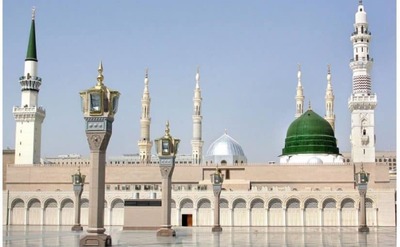
children’s rulings in islam
the sharia is the comprehensive islamic law that comprises all rulings concerning each and every matter to the muslim community. the child has certain islamic rulings that maintain and save his life, money, religion and honor. they will be addressed briefly here!
rulings of infanticide and abortion
the child has the right to live. so, his first right is fulfilled through islam’s encouragement to have many children. the prophet muhammad (peace be upon him) said: “marry those who are loving and fertile, for i will be proud of your great numbers before the other nations.” (classed as saheeh by al-albaani in irwa’ al-ghaleel, 1784) this hadith indicates that it is encouraged to marry women who are fertile, so that the numbers of the ummah increase and this will make the prophet (pbuh) feel proud of the great number of his muslim ummah in comparison to all other nations on the day of judgment. this shows that it is encouraged to have a lot of children. as for the call to birth control that sadly some muslim nations are promoting, it is a missionary call that seeks to weaken muslims and minimize their numbers. scholars issued fatwas that using contraceptives is permissible if it is used to give the child the proper time of nursing and parental care ([1]), or if pregnancy might be a risk or dangerous to the woman’s life, provided that it is confirmed by a trustworthy muslim doctor ([2]).
* to care for the child and keep his life, certain rulings are set in islam:
(1) permitting to break the fast of pregnant or nursing women if they are afraid of any harm on themselves or their children ([3]).
(2) delaying the execution of punishments and sanctions on pregnant women till they deliver the baby, nurse and wean him ([4]).
(3) protecting the life of the baby since it is just a fetus in his mother’s womb by prohibiting abortion. if he is a fetus in the first months, before the spirit is breathed into him and before hearing a heartbeat, scholars have different opinions concerning abortion at this period; some of them prohibit it and some of them permit but classify it as a reprehensible act. the scholars who permit it with reprehensibility leave the matter to the piety and faith of the woman. “yet, piety requires the muslim to avoid such suspicions for fear of getting involved into any prohibited act” ([5]).
as for abortion after the spirit is breathed into the fetus, namely hearing a heartbeat, it is unanimously prohibited according to islam. if the pregnant woman or someone else aborted the fetus intentionally and on purpose, there are two cases:
* the fetus falls alive then he dies because of this act, in that case the person who is responsible for killing the fetus has to pay diyah ([6]). the kaffarah (expiation) for manslaughter involves freeing a believing slave. if one is unable to do this, one may resort to fasting two consecutive months. if it is not possible to do so as well, one is to feed sixty needy persons. the muslim is not allowed to move from expiation to the next unless he/she is really unable to do the first.
* the fetus falls dead because of this act, in that case the doer has to free a male or female slave. the kaffarah is as mentioned above in the previous point.
the doer of this act does not have the right to inherit any of the deceased baby’s fortune ([7]).
(4) the obligation of saving and getting the baby out of the body of his mother if she dies for any reason, even if it requires a surgical operation on the dead body to extract the baby ([8]).
(5) the obligation of proper islamic burial. if the fetus is less than 4 months, he should be wrapped in a piece of cloth and then be buried. if he is older than 4 moths, his corpse has to be washed and enshrouded, then to pray the funeral prayer for him, then to be named and buried. this means to follow the funeral procession and offer the prayer for the deceased baby. if the baby is born alive then he dies at the same moment of birth or shortly after, it is sunnah (prophetic tradition) to do 'aqeeqah([9]) for his birth ([10]).
(6) the obligation of embracing the forsaken or left baby, guaranteeing his freedom and spending on him from bayt al-maal (the muslim public treasury from which the muslim government spends) ([11]). also, it is obligatory to spend on the orphans from bayt al-maal.


